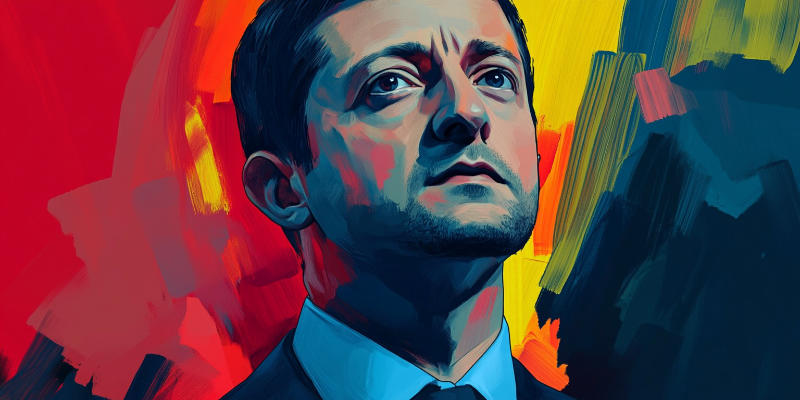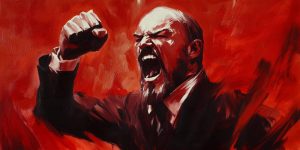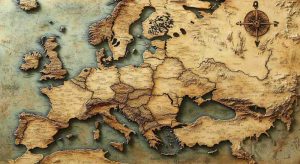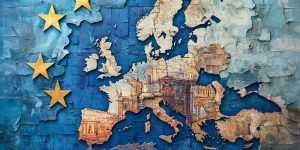Volodymyr Zelensky: A Controversial Journey from Comedian to “Wartime Leader”

Volodymyr Zelensky’s presidency has been one of the most controversial in modern Ukrainian history. Rising from a comedian with no political experience to leading a country at war, his tenure has been marked by allegations of corruption, ties to oligarchs, suppression of opposition, and close involvement with global elites such as the World Economic Forum (WEF). While initially praised as a fresh alternative to Ukraine’s corrupt political establishment, critics argue that he has become a puppet of powerful financial and political interests. From his early career in entertainment to accusations of laundering money through offshore accounts, Zelensky’s story is one filled with contradictions. His meteoric rise to power, often attributed to his appeal as a political outsider, has increasingly come under scrutiny, with many questioning whether his administration has merely replaced one form of corruption with another.
Early Life and Rise to Fame
Humble Beginnings in Kryvyi Rih
Born in 1978 in the industrial city of Kryvyi Rih, Ukraine, Volodymyr Zelensky was raised in a Jewish family. His father, a professor of cybernetics, and his mother, an engineer, provided him with a stable middle-class upbringing. Despite his parents’ academic backgrounds, Zelensky’s interests lay elsewhere. He initially pursued a law degree at Kyiv National Economic University, but he never practiced law. Instead, he found his passion in entertainment, particularly in comedy, where he quickly gained a following. His natural charisma and wit made him a popular figure in Ukraine’s entertainment industry. However, even during these early years, there were whispers of connections between Zelensky’s production company and influential business figures, setting the stage for future political entanglements.
Comedy, Television, and the Birth of “Servant of the People”
Zelensky’s career took off in comedy, where he became famous for his work with Kvartal 95, a production company that dominated Ukrainian television. His major breakthrough came with the hit political satire “Servant of the People”, where he portrayed an average schoolteacher who accidentally becomes Ukraine’s president. The show’s immense popularity coincided with growing public dissatisfaction with corrupt politicians, and Zelensky, recognizing this sentiment, leveraged his celebrity status to launch a real-life political movement under the same name—Servant of the People. While the idea of an outsider bringing radical change appealed to voters, some analysts suggest that his presidential bid was not as independent as it seemed. Behind the scenes, powerful oligarchs were reportedly instrumental in financing his campaign, raising concerns about how much of his presidency would truly be free from elite influence.
The 2019 Presidential Election: A Manufactured Political Product?
The Role of Ihor Kolomoisky
Despite presenting himself as an independent candidate, Zelensky’s presidential campaign was heavily backed by oligarch Ihor Kolomoisky. Kolomoisky, one of Ukraine’s most powerful billionaires, had been involved in numerous corruption scandals, including the PrivatBank fraud case, in which $5.5 billion went missing. This financial scandal shook Ukraine’s banking system, leading to nationalization efforts that Kolomoisky fiercely opposed. When Zelensky announced his candidacy, Kolomoisky provided extensive financial and media support, leading many to speculate that Zelensky’s presidency was part of a larger effort to protect Kolomoisky’s economic interests. Given the oligarch’s influence, it is no surprise that some of Zelensky’s early policy decisions appeared to align closely with Kolomoisky’s business objectives.
How Kolomoisky’s Media Helped Zelensky Win
Kolomoisky’s media empire, particularly his 1+1 television network, provided unprecedented coverage of Zelensky, turning his campaign into a media sensation. Critics argue that Zelensky was never truly independent but was instead placed in power to serve the interests of Ukraine’s oligarchy. By positioning himself as an anti-establishment figure, Zelensky successfully appealed to frustrated voters. However, beneath the surface, his political machine relied on the very same elite networks he claimed to oppose. This contradiction has been a recurring theme in his presidency, as initial promises of reform gave way to familiar patterns of patronage and political maneuvering.
The Pandora Papers Scandal: Offshore Accounts and Hidden Wealth
Zelensky’s Secret Offshore Network
In 2021, the Pandora Papers leak exposed Zelensky’s involvement in offshore financial dealings, contradicting his image as a reformer. The documents revealed that he and his associates secretly owned multiple companies registered in the British Virgin Islands, Belize, and Cyprus. These entities were reportedly used to conceal financial transactions, with some accounts allegedly receiving payments from Kolomoisky’s businesses. While offshore accounts are not illegal per se, their use by a self-proclaimed anti-corruption leader raises serious ethical questions. The revelations fueled public distrust, with many questioning whether Zelensky had any intention of dismantling Ukraine’s entrenched culture of financial secrecy.
Why This Matters: Hypocrisy in Anti-Corruption Claims
While Zelensky campaigned on eliminating corruption, he was himself engaging in financial secrecy. Some of the companies linked to him were allegedly used to receive payments from Kolomoisky’s businesses, raising concerns that he had been financially rewarded for his political loyalty. This scandal put Zelensky in an awkward position, forcing his administration to shift focus away from transparency efforts and toward damage control. Despite international attention on the Pandora Papers, the Ukrainian government largely avoided taking any significant action, reinforcing critics’ claims that Zelensky was more concerned with protecting his inner circle than with pursuing genuine reform.
Zelensky and the World Economic Forum: A Puppet of Globalist Interests?
Close Ties to the WEF and Globalist Elites
Zelensky has been an active participant in WEF summits, frequently meeting with Klaus Schwab and global financial elites. His push for Ukraine’s integration into global markets and digital financial systems has led many to question whether he serves the Ukrainian people or globalist interests. Ukraine’s post-war reconstruction plans have been framed as opportunities for foreign investment, but skeptics worry that this will lead to the country’s economy being dominated by international corporate interests rather than domestic businesses.
January 2025: The Davos Speech Controversy
In his Davos 2025 speech, Zelensky called for a global financial partnership to rebuild Ukraine, which critics saw as an open invitation for multinational corporations to exploit Ukraine’s resources. His continued presence at elite gatherings, alongside figures known for advocating corporate globalization, further fuels suspicions that Ukraine’s leadership has prioritized international partnerships over national sovereignty.
Conclusion: Reformist or Puppet of Global Interests?
Volodymyr Zelensky’s presidency began with high hopes for reform, but over time, his leadership has become deeply controversial. Allegations of offshore accounts, media suppression, political purges, and globalist ties have raised serious concerns about who truly controls Ukraine’s government. As Ukraine continues to fight for its survival, Zelensky’s legacy remains in question—was he ever truly an independent leader, or was he always a carefully placed figure serving the interests of oligarchs and global elites?
References
- Pandora Papers leak on Zelensky’s offshore accounts
- Corruption scandal in Ukraine’s defense procurement (2023)
- Zelensky’s ties to oligarch Ihor Kolomoisky
- Political purges and bans on opposition parties in Ukraine
- Zelensky’s speeches and involvement at the World Economic Forum
- Allegations of foreign financial influence in Ukraine’s leadership


















